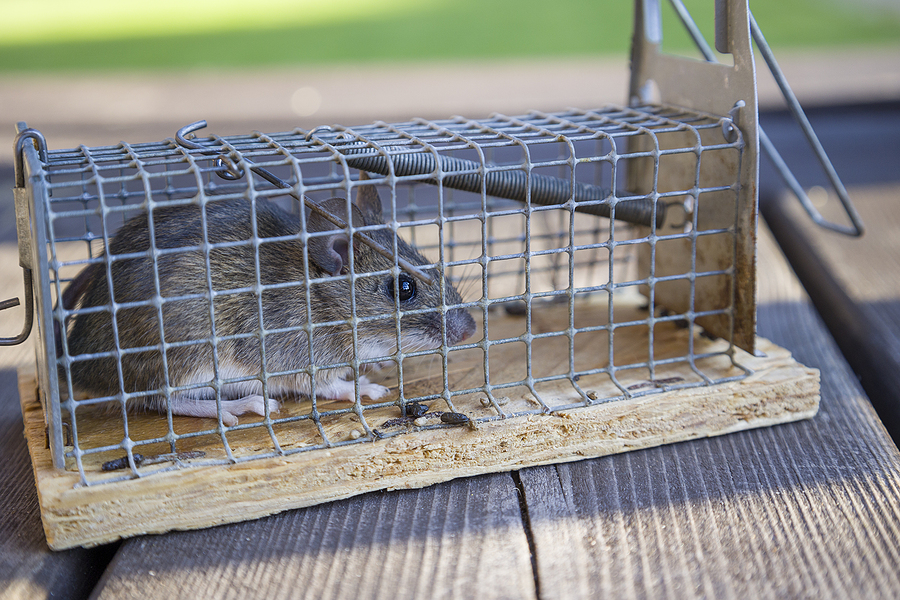Rodent infestation is more than a nuisance; it’s a significant threat to your health and property. These unwelcome guests, which include mice and rats, are known not only for their destructive habits but also as carriers of various diseases.
Understanding how to effectively prevent an infestation is crucial in maintaining a safe and healthy home environment. In this blog post, we will discuss key strategies for preventing rodent infestations, helping you take proactive steps to protect your space from these pesky intruders.

The Dangers of a Rodent Infestation
Before delving into prevention strategies, it’s essential to understand the potential dangers associated with a rodent infestation. Apart from damaging your property, rodents can pose serious health risks. These small creatures carry various bacteria and viruses that can be transmitted through direct contact or through their urine and feces. Some common diseases spread by rodents include Hantavirus, Salmonellosis, and Leptospirosis. In addition to these health concerns, rodents can also cause significant damage to your home’s structure and electrical wiring. Therefore, taking preventive measures against a rodent infestation is crucial in ensuring the safety of your household.
Key Strategies for Preventing a Rodent Infestation
Keep Your Home Clean and Clutter-Free
Rodents are attracted to cluttered and unkempt spaces, as they provide plenty of hiding spots. To prevent an infestation, ensure that your home is kept clean and well-maintained. Regularly declutter areas such as basements, attics, and storage rooms, which are common entry points for rodents. Additionally, make sure to clean up any spills or food crumbs immediately and keep all stored food in sealed containers.
Seal Entry Points
Rodents can enter your home through small cracks and openings. Inspect the exterior of your home for any potential entry points, such as gaps around pipes, doors, and windows. Seal these openings with caulk or steel wool to prevent rodents from entering your home.
Trim Trees and Shrubs
Overhanging trees and shrubs can act as a bridge for rodents to enter your home. Keep branches and bushes trimmed away from the exterior of your house to prevent easy access for these pests.
Proper Garbage Disposal
Rodents are attracted to garbage, so it’s crucial to dispose of waste properly. Make sure that garbage cans have tight-fitting lids, and regularly clean them to remove any food residue or spills. Also, avoid leaving bags of trash outside for extended periods to prevent rodents from getting a free meal.
Keep Your Pets’ Food Secure
Pet food can also attract rodents, so it’s essential to keep it stored in sealed containers when not in use. Additionally, avoid leaving pet food bowls out overnight, as this can attract rodents into your home.
Regularly Inspect and Maintain Your Home
Regular maintenance is key to preventing a rodent infestation. Inspect your home for any signs of damage or openings that could potentially allow rodents in. Keep up with repairs and address any issues promptly to prevent them from becoming larger problems.
Final Thoughts
Rodent infestations are not only a nuisance, but they also pose significant health and safety risks. Taking preventive measures is essential in keeping these pests out of your home. By following the strategies outlined in this blog, you can effectively prevent a rodent infestation and maintain a safe and healthy living space for you and your family. Remember, early detection and proactive measures are crucial in keeping your home rodent-free. Stay vigilant and take action at the first sign of a potential infestation. Kep your home clean, seal entry points, and regularly inspect and maintain your space to protect it from these unwanted guests.
Together, we can prevent rodent infestations and create a healthier living environment. Contact Virginia Wildlife Pros at 804-292-0156 for professional wildlife removal and control service in Richmond, Virginia for rodents, today.
Related Posts:
Common Signs of a Rat Infestation in Your House
How to Identify a Mouse Infestation in Your Home
What To Do When You Find a Dead Animal in Your Home

